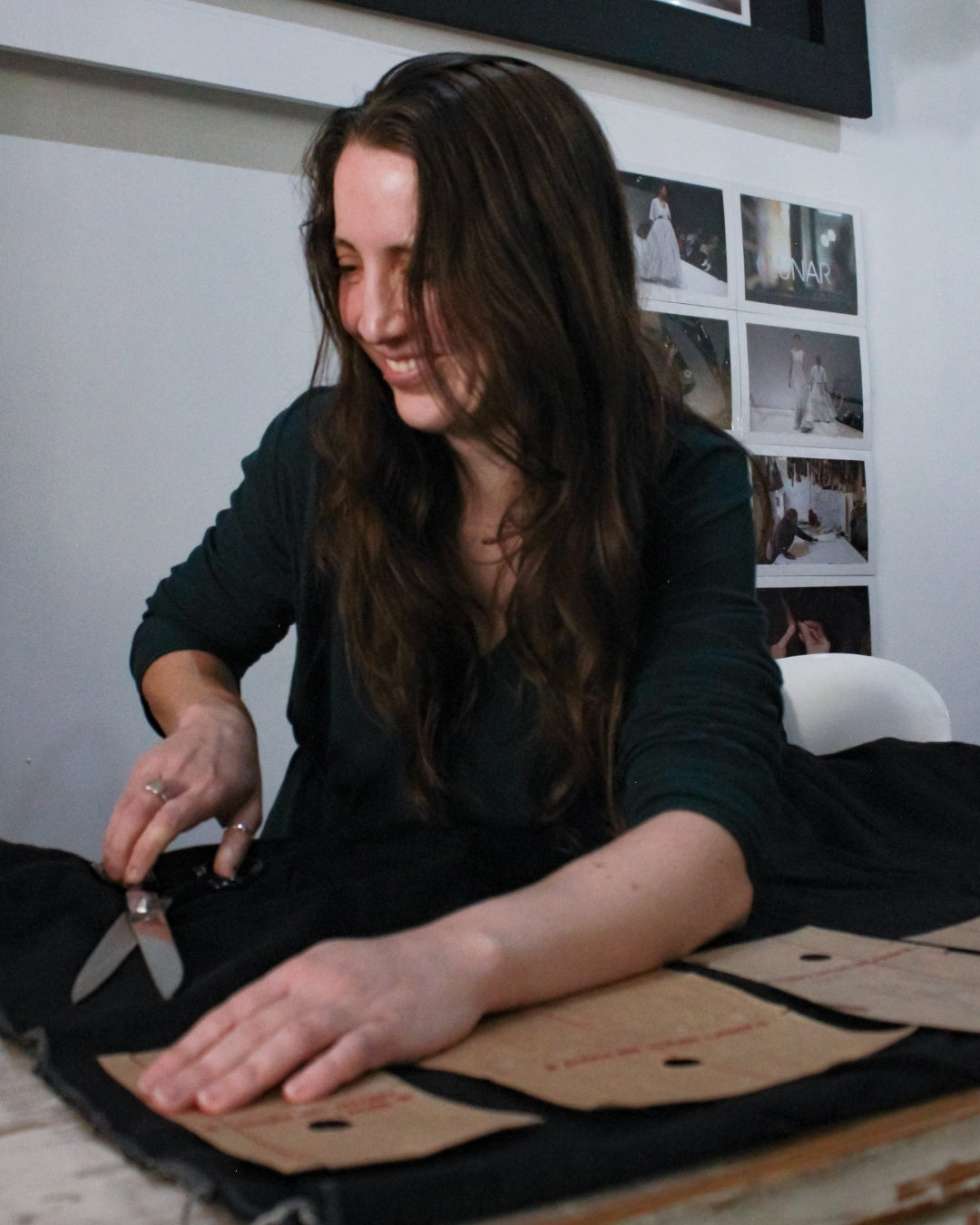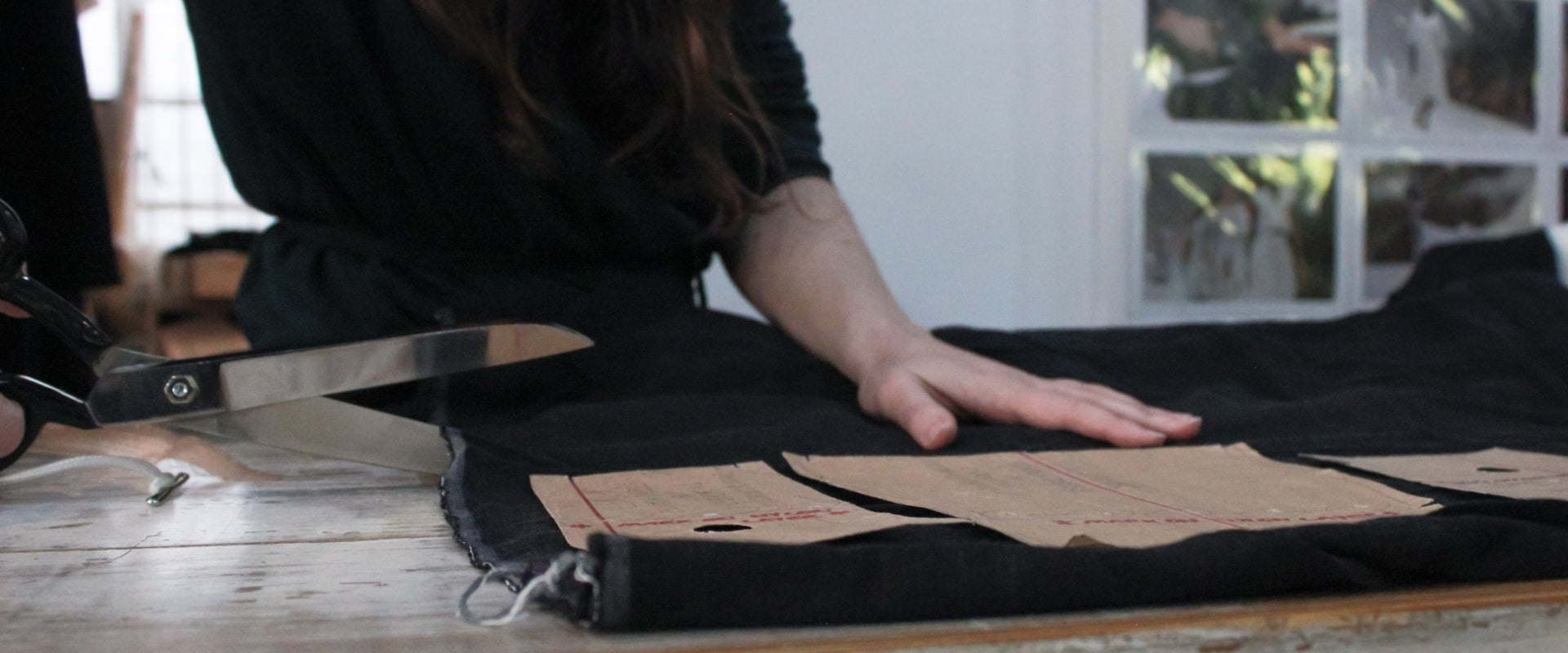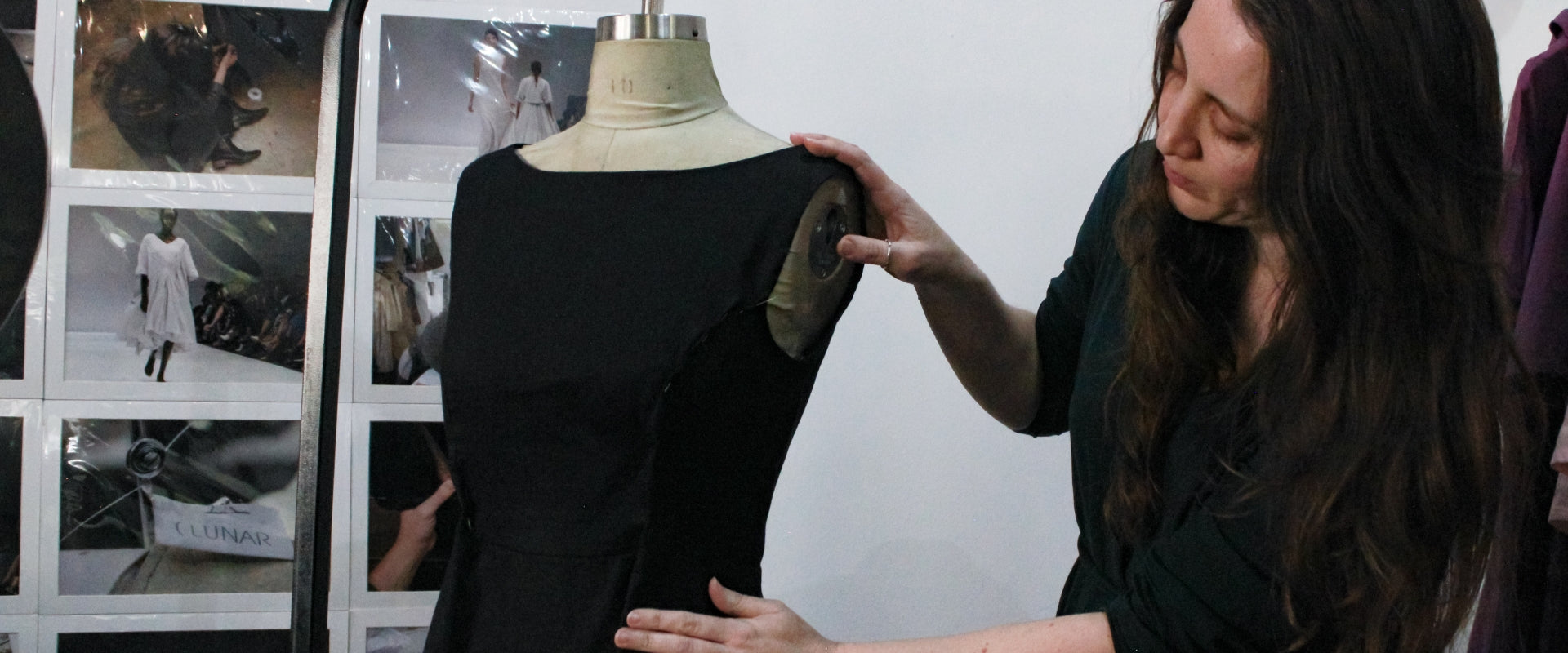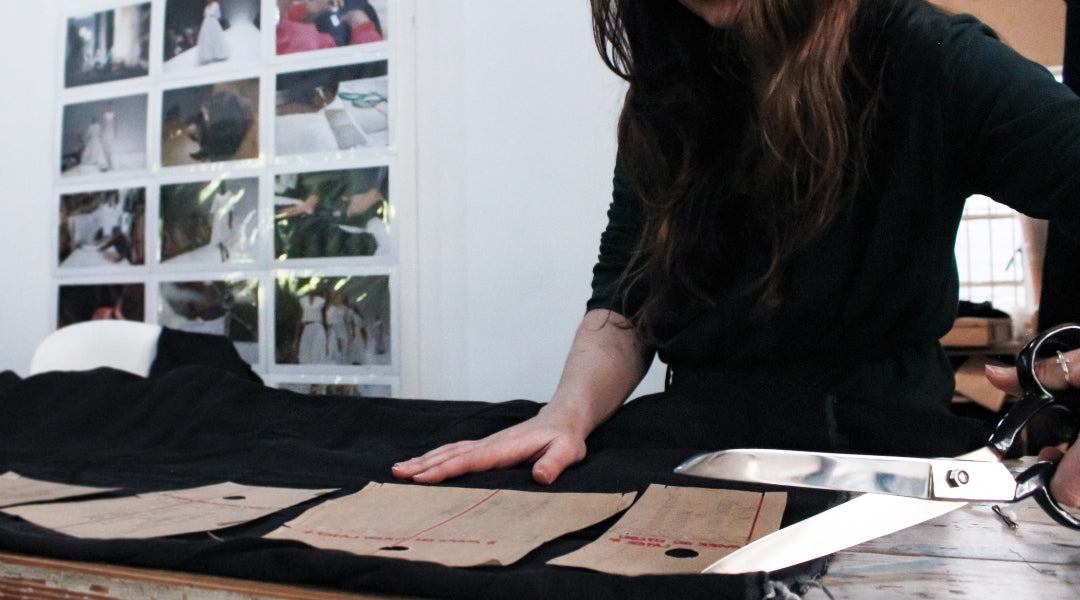Let's Chat Slow Fashion with Nicola Luther
With Fashion Revolution Week here, it's the ideal time to start the conversation around sustainable fashion. Nicola Luther is the owner, head designer, creative director and more of LUNAR. Her expertise and passion for eco-fashion drives the LUNAR legacy forward.
Read more about Nicola's insights into sustainability below.

What does slow fashion mean to you?
"In essence, slow fashion is a way of producing and consuming fashion that considers individuals, communities and the earth. Slow fashion ensures no harm is done: neither to the planet nor to the individuals creating the products.
It is part of a broader ‘slow’ way of living which rejects the fast-paced, over consuming, attention deficit, capitalistic culture we often find ourselves in which is never satisfied, never resting, always striving for more.
Slow living is a move away from this and a desire to pay a bit more attention to the process and to ensure no harm is caused. It is a move to a simpler, more considered and more responsible way of living and consuming."
Was LUNAR set up as a slow fashion brand or did this approach evolve?
"Since our inception 25 years ago, LUNAR has always been a brand focused on people and the planet. Eco-conscious fashion in particular has always been part of our DNA."
Please explain your approach to slow fashion & sustainability with regards to the holistic business.
"Responsible fabric choices is one of LUNAR’s primary concerns when it comes to slow, sustainable fashion. We have committed to only using 100% natural fibres. This is because the washing of synthetic clothing releases half a million tonnes of plastic microfibres into our oceans annually, accounting for 85% of all synthetic material, harming marine life and ending up in our food supply. (1)
The huge amounts of waste generated through fashion is also of particular concern to us at LUNAR. 150 billion new garments are produced globally every year, with a staggering 50% of these being burnt or ending up in landfills within only one year of being made. (2)
In contrast to this fast, disposable fashion LUNAR aims to create clothing that is timeless with added durability and can last at least 10 years whilst keeping its quality and design appeal. Nothing makes the LUNAR team happier than a customer who has a LUNAR outfit they bought 15 years ago and it is still their favourite go-to outfit."
*1&2 - Data from New Standard Institute
McKinsey (2016). Style that’s sustainable: A new-fast fashion formula.

Through your eyes, please describe the life of an ethically produced LUNAR garment?
"We always hope for it to be a very long and well-loved life. The baseline we aim for when producing a LUNAR garment is; can it be frequently worn for 10 years? Nothing makes us happier than when a customer tells us they have a LUNAR style that they bought many years before and it is still their favourite go-to dress, every time they wear it they feel beautiful.
Preferences, personal style and sizes change over time though. With this in mind, we have recently introduced LOVED LUNAR - our trade-in initiative which gives your beloved LUNAR styles a new home, where they’ll be well-cherished and well-worn once again. Closing the loop in the fashion chain and enabling circularity where nothing is wasted or discarded unnecessarily.
Eventually, when a garment is discarded (hopefully only in 30 years’ time) it is incredibly important to us that it won’t fill up a landfill somewhere. This is one of many reasons why we use natural fabrics, as the thought of something sitting in a landfill for years and years fills me with absolute dread. A linen top, for example, would take 2 weeks to decompose as opposed to a polyester dress which would take over 200 years!"
What are the challenges associated with slow, sustainable fashion?
"Due to the enormous challenge of climate change it is common to feel overwhelmed by the problem and not know what to do about it or where to start. Most things one does will have many cons and a few pros in terms of sustainability.
There is also very often conflicting information regarding sustainable practices. For us at LUNAR, we have found educating ourselves to be the most important and then to do whatever we can to become more and more sustainable. We are not perfect in this regard nor do we have to be. We do however, have to be constantly improving, learning and doing better when we know better. "

Do you think SA's fashion scene is geared towards sustainability or do we have a long way to go?
"Over the last few years, I’ve definitely noticed an increased interest towards sustainability in SA which is hugely encouraging. However, we do still have a far way to go.
The main challenge in the South African fashion industry at the moment is the lack of a sustainable infrastructure. This is where the consumer comes in though; if we all demand sustainable practices from the businesses we support, suppliers will come in to fill the required gaps in the market. Since the market is based on supply and demand, we all need to make responsible choices in what we support and where we spend our money."

Sustainability represents an ongoing journey that we consistently pursue collectively. Stay informed about the latest eco-conscious developments by following our social media channels!
